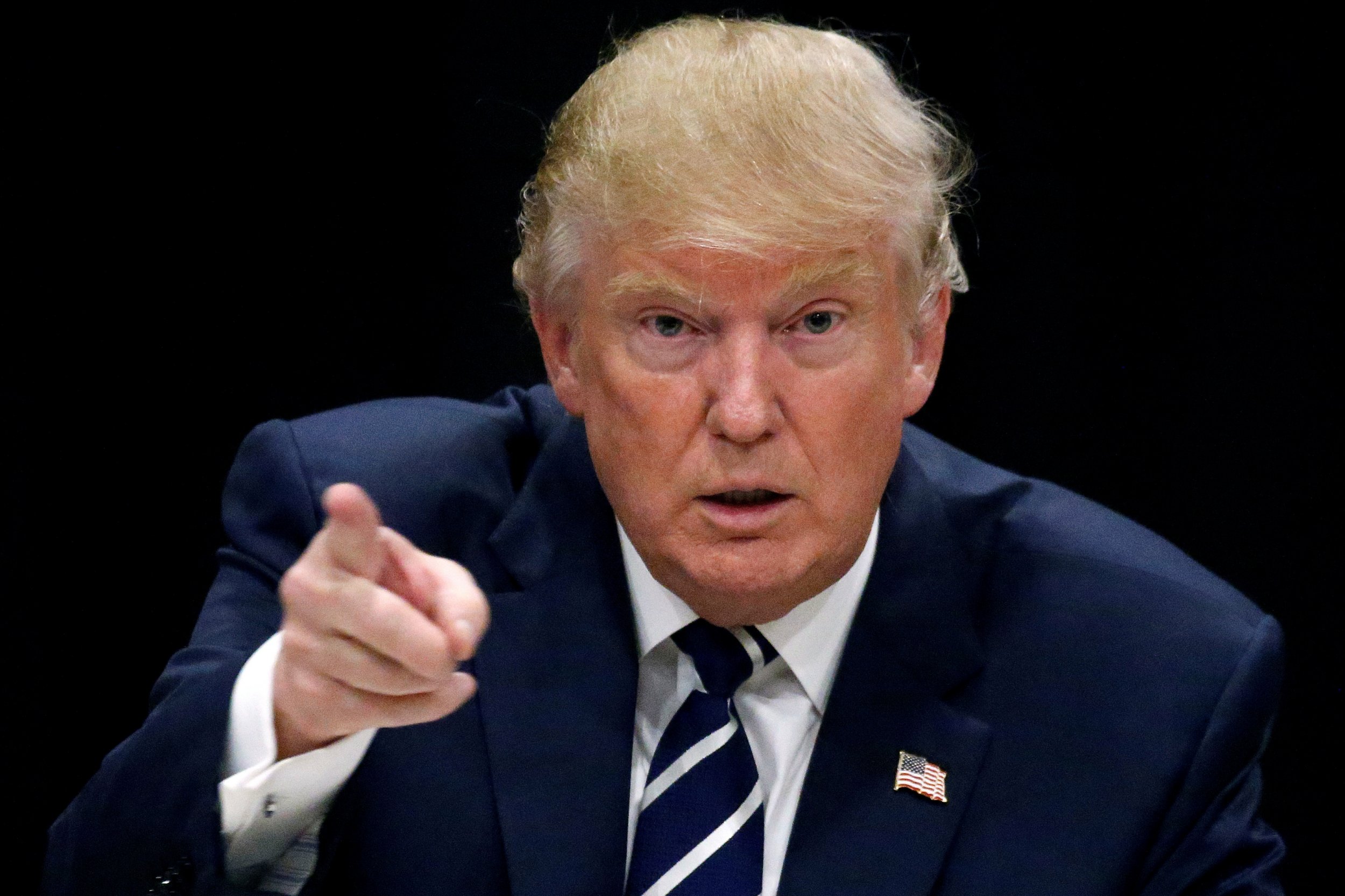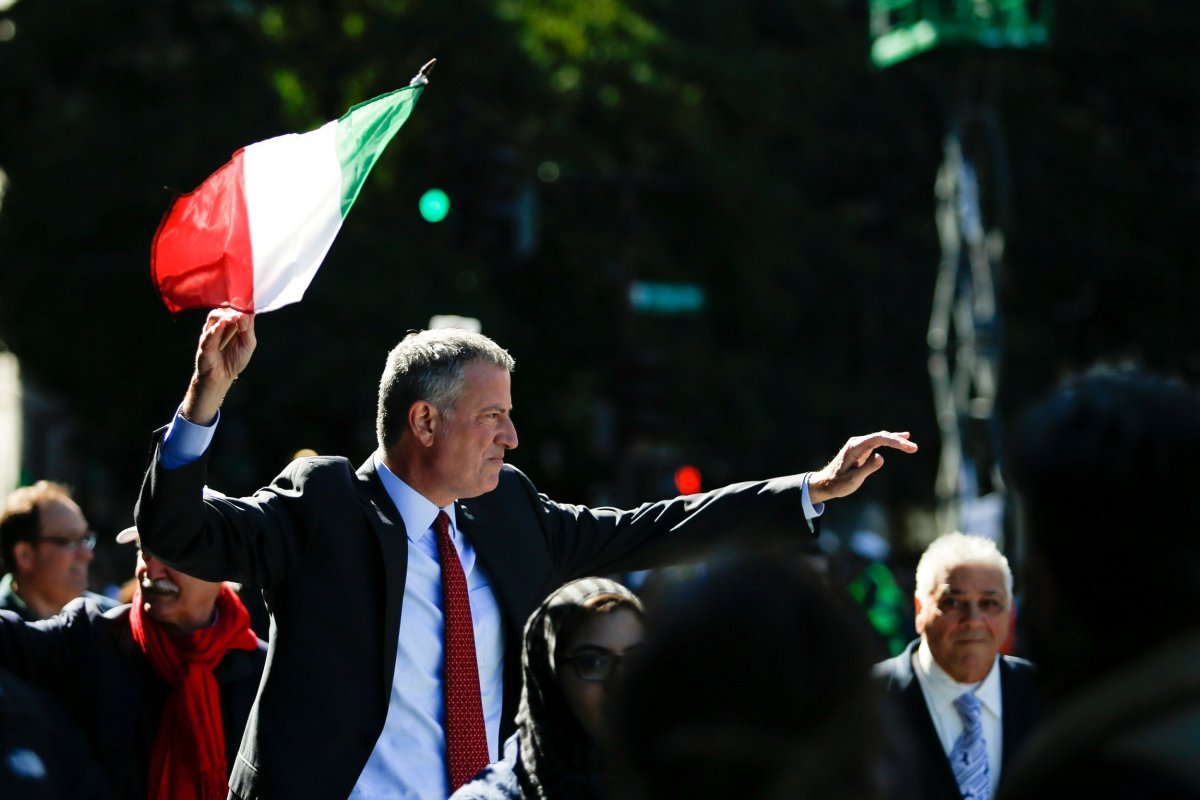
In 2013, a relatively inexperienced political operative ran a campaign of radical change against a three-term status quo. He enthralled his supporters with a vision of profound inequality, of elites who'd forgotten ordinary people. He cleverly segmented the electorate into racial and class tranches, pandering to some while ignoring others. When he won, it was with only 19 percent of registered voters casting a ballot on his behalf.
That's the story of Bill de Blasio, the proudly liberal mayor of New York City. When he was elected, many were terrified that New York was returning to the "bad old days" of the 1970s, rampant crime coupled with municipal incompetence. Those fears remain unrealized, but so do hopes of Blasio accomplishing policy goals that, divorced of his divisive rhetoric, could have improved city life. His time as mayor has shown the perils of winning an election by playing directly (and disingenuously) to the fears and hopes of a narrow political base while maligning a large part of the electorate.
Three years later, another, even less experienced political candidate won office with just 27 percent of eligible voters, again by targeting populist promises to a demographically narrow but extremely committed group of supporters. That was Donald Trump, of course, in maybe the biggest upset in modern American politics. De Blasio, a onetime Hillary Clinton campaign staffer, said last Wednesday he would "take solace in the fact that the president-elect is a dyed-in-the-wool New Yorker," asking Trump to "remember the lessons of a life lived in New York City."

We'll see about that. For now, de Blasio can serve as a cautionary tale for those who want Trump to be a successful president whose bluster disguises a more moderate agenda that doesn't involve border walls or nuclear wars. Yet the striking similarities between de Blasio and Trump also offer hope to those who believe the best outcome of a Trump presidency is four years of inaction.
Just like Trump, de Blasio defeated a woman (City Council Speaker Christine Quinn) who was a moderate promising a smooth continuation of things as they more or less were—in the city's case, of Michael Bloomberg's 12 years in office, marked as those were by technocratic centrism of the kind favored by President Obama.
Many hoped that, once he was elected, de Blasio would temper his rhetoric and govern his way toward the middle. De Blasio's inauguration suggested otherwise. One speaker thundered against "political correctness" (sound familiar?) and said New York City had become a "plantation." De Blasio made faint acknowledgement of Bloomberg's achievements but also promised to follow through on his campaign rhetoric: "When I said we would take dead aim at the Tale of Two Cities, I meant it. And we will do it."
The tricky thing about winning as a change candidate is that you're expected to act quickly and decisively: If all is hell, there's no time for hedges or delays. Unless the candidate was merely trafficking in illusions. De Blasio painted a dystopian portrait of New York City, though crime was at historic lows, tourism at historic highs and city services were functioning smoothly. Trump similarly evoked America in decline, presided over by a singularly incompetent chief executive. In fact, the national unemployment is at a record low of 4.9 percent, while Obama has an approval rating of 56 percent, hardly suggestive of a disaffected nation.
De Blasio's most ambitious promise was to reform the New York City Police Department. Election cured him of this impulse. As his police chief, de Blasio appointed William Bratton, a white Bostonian who'd run the departments in New York and Los Angeles—a capable veteran of urban policing, for sure, but not the progressive reformer social justice activists wanted. And while the courts severely curbed stop-and-frisk, de Blasio stood by broken-windows policing, which some believe is as intrusive as stop-and-frisk.
As the debate over race and policing has taken on ever wider scope, de Blasio has given Black Lives Matter words of support—but not much more than that. The NYPD today looks and acts much as it did under Mayor Bloomberg. Earlier this year, de Blasio refused to release the disciplinary record of Daniel Pantaleo, the white officer who notoriously placed black Staten Island resident Eric Garner in an apparent choke hold, killing him. "It is, I promise you, going to be an issue in 2017," said an associate of the Rev. Al Sharpton, who'd backed de Blasio.
You have to wonder if the hardline nativists who expect from Trump a wall on the Mexican border and a ban on Muslim immigrants will accept both as merely "great campaign devices," to borrow Newt Gingrich's term for the former proposal. Or if congressional Republicans will countenance his desire to keep parts of Obamacare, which Trump had previously promised to repeal wholesale. Less than a week since his election, that promise has already been jettisoned. Much like de Blasio, Trump could find that lowering expectations right after raising them is a perilous task.
De Blasio had his version of the Obamacare repeal, and it has to do with one of New York's more quaint traditions. As a Day One issue, he promised to end the use of horse-drawn carriages in Central Park, siding with those who called the practice cruel. This was a purely transactional stance, as animal rights activists had been some of the earliest donors to his campaign (think of the Evangelicals who supported Trump solely because they're convinced he'll appoint pro-life Supreme Court justices).
Yet the clip-clop of equine hooves continues in Central Park. Why? Because de Blasio's vociferous opposition to the issue gave activists plenty of time to organize. Liam Neeson wrote an op-ed for The New York Times in support of the Irish immigrants who drove the carriages; the Daily News started a "Save Our Horses" campaign that brought 40,000 petitions to City Hall. At the Brooklyn stable where my daughter went for pony rides, a page from the News campaign was taped to a wall, de Blasio's face doctored with a Hitler mustache.
Many people believe the carriage horses are a New York tradition that deserves to stay. Yet the outsized opposition to the carriage ban had less to do with horses than politics. The issue concentrated a rising antipathy to de Blasio, forcing the mayor into a pitched battle with an organized, galvanized opposition. The victory was largely inconsequential, saving at most 400 jobs, yet it proved an embarrassment for de Blasio, as well as a warning for the kind of fierce resistance he might encounter on other fronts.
Look for the Democrats to pick a similarly winnable fight with Trump: on the open Supreme Court seat, for example, or the Paris climate accords.
There are temperamental similarities between de Blasio and Trump, too. Both are stubborn, set in their ways and reluctant to listen. De Blasio took months to move from his Brooklyn rowhouse to Gracie Mansion on the Upper East Side; he still returns to Brooklyn each morning to exercise and eat pastries, disregarding complaints from critics about his "lackadaisical work ethic," as The Wall Street Journal once described the growing derision of his schedule, with little city business seemingly accomplished before noon.
Trump, too, has indicated he wants to spend weekends at Trump Towers, according to The New York Times, "or his golf course in Bedminster, N.J., or his Mar-a-Lago estate in Palm Beach." He could easily make George W. Bush, given to long brush-clearing sojourns at his Crawford, Texas, ranch, seem like a workaholic.
Both BdB and DJT, as they're sometimes called on Twitter, are thin-skinned and quick to injure, often blaming the press for their problems. De Blasio has frequently battled with the New York Post, which is owned by conservative media mogul Rupert Murdoch. Such warfare has perhaps fired-up de Blasio's base, but it is both distracting and unseemly. In fact, after de Blasio insulted a New York Post reporter by telling him he worked for a "right-wing rag," The New York Times lamented de Blasio's "media freeze-out," comparing him to Trump.
Trump's own war against the press will likely continue as he moves from Trump Tower to the White House. Last weekend, he sent a series of tweets claiming that The New York Times had lost subscribers over its coverage of the "Trump phenomena." Blasting away at the press, though, only suggests a contempt for the workings of an open society—not to mention an obvious desire to keep secrets secret. Nothing, however, emboldens journalists like the scorn of politicians.
Lastly, both men won elected office by promising to break with politics as usual—only to quickly invite lobbyists into the fold, in perhaps the most usual political move of all. Lobbyists have been de Blasio's undoing: He is now the subject of several federal and state inquiries, most of them having to do with campaign donations made in exchange for political favors. Some of those favors were allegedly granted to Trump's peers in the real estate development industry, whose excesses he'd promised to curb during his campaign.
It's much too early to tell how much influence special interests will have in Trump's White House. Yet the signs are discouraging. He vowed to "drain the swamp," yet within days of being elected to office, he'd had an apparent change of heart, with the Times reporting that Trump "is filling his transition team with some of the very sort of people who he has complained have too much clout in Washington: corporate consultants and lobbyists."
Only three years after promising to make New York a beacon of progressivism, de Blasio seems less and less like a liberal lion than just another machine politician—perhaps one headed to prison, given the very serious and credible allegations that have hounded him.
Just like Trump, de Blasio is adept at blaming others when the fault is so obviously his own. He has never treated the office of City Hall with the humility it deserved. Nor has he tried to expand his political reach to include anyone but his most ardent supporters. Those are dwindling in number, having finally understood that the mayor they got wasn't the one they'd voted for.
"There's a growing enthusiasm gap," said Bertha Lewis, a community activist who was once a vociferous de Blasio supporters.
Fortunes change quickly in politics, and if de Blasio's victory in 2013 was a reaction against Bloomberg, the counter-reaction is well underway, with longtime Bloomberg operative Kevin Sheekey rumored to be considering a mayoral run next year. This may be the most lasting lesson Bill de Blasio can teach Donald Trump: The next election is always near.
Uncommon Knowledge
Newsweek is committed to challenging conventional wisdom and finding connections in the search for common ground.
Newsweek is committed to challenging conventional wisdom and finding connections in the search for common ground.
About the writer
Alexander Nazaryan is a senior writer at Newsweek covering national affairs.
To read how Newsweek uses AI as a newsroom tool, Click here.








